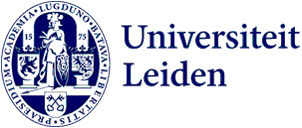Internship and research
Many study programmes offer the opportunity to do an internship or research project, either as a compulsory part of the curriculum or to earn elective credits.
Go to Internships and research projects to find out what might be possible.
Research and Fieldwork Abroad
Students may undertake reseach or fieldwork abroad as a part of a research project, thesis, etc. This is generally organized by the student his or herself, or as a part of an existing research project. Although this activity does not directly lead to credit transfer, due to the resulting academic product and associated credit, research or field work must still be approved and registered prior to departure.
More information
Finances
Students are responsible for all costs associated with the fieldwork or research, such as food and accommodation, transportation, etc, and should plan accordingly.
Students may be eligible to apply for scholarships through Leiden University.
Negative Travel Advisories
Students should review the Dutch Ministry of Foreign Affairs travel advisories prior to pursuing a specific research/fieldwork location. Students will not be given approval or awarded Leiden University credit for work/research undertaken in a country with a negative travel advisory, or for an academic product resulting from such work/research. These destinations are also not eligible for Leiden University scholarships. There are no exceptions to this policy.
If a travel advisory changes to negative after a student has been approved for research abroad, either before or during the stay abroad, students are required to follow Leiden University's instructions regarding next steps. Please review Leiden University's study abroad regulations for further information.
A negative travel advice from the Ministry of Foreign Affairs includes areas where the advice is "Niet Reizen" ("Avoid all travel") as well as "Alleen noodzakelijke reizen" ("Avoid Non-essential travel"). These are represented by the colors red and orange on the Ministry's website.
If you are unsure of the implications of the travel advisory listed on the Ministry's website, contact the Humanities International Office before taking any further steps. You can find the contact information on the topright of this page.
Fieldwork in Middle Eastern Studies (research)
The aim of the fieldwork for the student is to gather data which can be used for the research project resulting in the thesis of the student.
Important remark
Students should be aware that Leiden University will not allow students to do fieldwork in areas colored red and orange (meaning "no travelling allowed" and "only necessary travelling allowed", respectively) by the Dutch Ministry of Foreign Affairs. The website of the Ministry gives further details (in Dutch). For further questions, contact the director of studies, Dr. Nicole A.N.M. van Os.
Arranging the fieldwork
The student is responsible for arranging the fieldwork him/herself in agreement with his/her supervisor. During the fieldwork the student should report on the progress of the fieldwork to his/her supervisor at least every 3 weeks unless otherwise agreed upon with the supervisor.
Prior to the fieldwork the student will write a fieldwork proposal of 5 to 10 pages. This proposal should be discussed with the Leiden supervisor(s) and (if applicable) the local supervisor, after which it needs to be forwarded to the Board of Examiners for approval prior to the start of the fieldwork. A copy of the proposal also needs to be handed in to the Student Advisor, Ms. Nicole A.N.M. van Os.
The proposal should consist of:
- filled out standard cover sheet
- research question; objectives of the fieldwork
- operationalisation of major concepts
- outline of the field: location and (where applicable) population
- outline of the planned activities
- relevance of the fieldwork to the student's programme and thesis
- outline of the method of data gathering (and analysis)
- time line and budgeting
Timing
The fieldwork should be conducted during the third semester of the research master programme. For students going in the Fall semester, the proposal should be submitted to the Board of Examiners by 1 June, for students going in them Spring semester, the proposal should be submitted to the Board of Examiners by 1 December.
Students should under no condition leave without the approval of the Board of Examiners. If they do so, they may risk not getting any credits for their fieldwork.
Costs and funding
The Faculty of Humanities offers a scholarship for students of various research MA programmes who wish to either study or conduct (field) research abroad: The Uhlenbeck scholarship programme.
Students may apply for additional (partial) funding of their fieldwork through, for example, LUF or LUSTRA or can search for other grants through the grantfinder of EP-Nuffic.
Assessment
After his/her return the student hands in a fieldwork report. The report should consist of the following elements:
- a description of the field and the research undertaken.
- an answer to the research question posed in the fieldwork proposal
- an evaluation by the student of the value of the fieldwork, problems encountered, a reflection on the fieldwork, etc.
The fieldwork report is an official examination and therefore needs to be written in English. It should be approximately 15 pages (excluding bibliography and/or appendices) and handed in to the Leiden supervisor(s). The student will be graded by his supervisor based on the fieldwork (the 3-weekly reports) and this final report.
